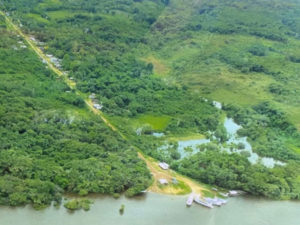The research focusses on challenges and tradeoffs faced by communities in protected forests across Quilombola territories. It analyses access to grievance mechanisms as a rights-based and environmental justice tool in order to make global biodiversity policy more sustainable and inclusive.

Under the Klimalog Project, Senior Researcher Marcelo Inacio da Cunha (PhD) has conducted fieldwork from July to August 2024 in rural Amazônia, Brazil. He looked into institution-based access limitations and the social-ecological tradeoffs faced by remote local communities living in strictly protected forest areas that overlap with claimed Quilombola territories, which have been collectively stewarded for centuries.
The research seeks to inform local, national, and global biodiversity-related policy processes, particularly the newly established Kunming-Montreal Global Biodiversity Framework under the Convention on Biological Diversity (CBD). It also addresses overall multilateral environmental processes of the Rio Conventions as well as associated science-policy interfaces.
Focus is laid in exploring the access(ibility) of grievance mechanisms by local communities as rights-based access and environmental justice levers towards inclusive sustainable futures, where no biodiverse area nor anyone is left behind.

Schreibe einen Kommentar